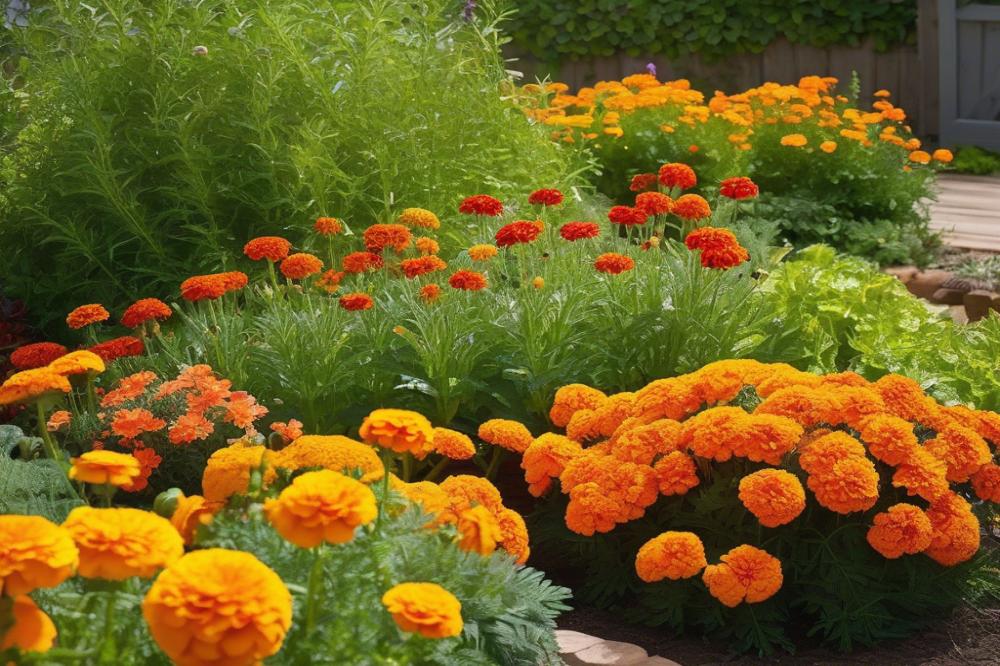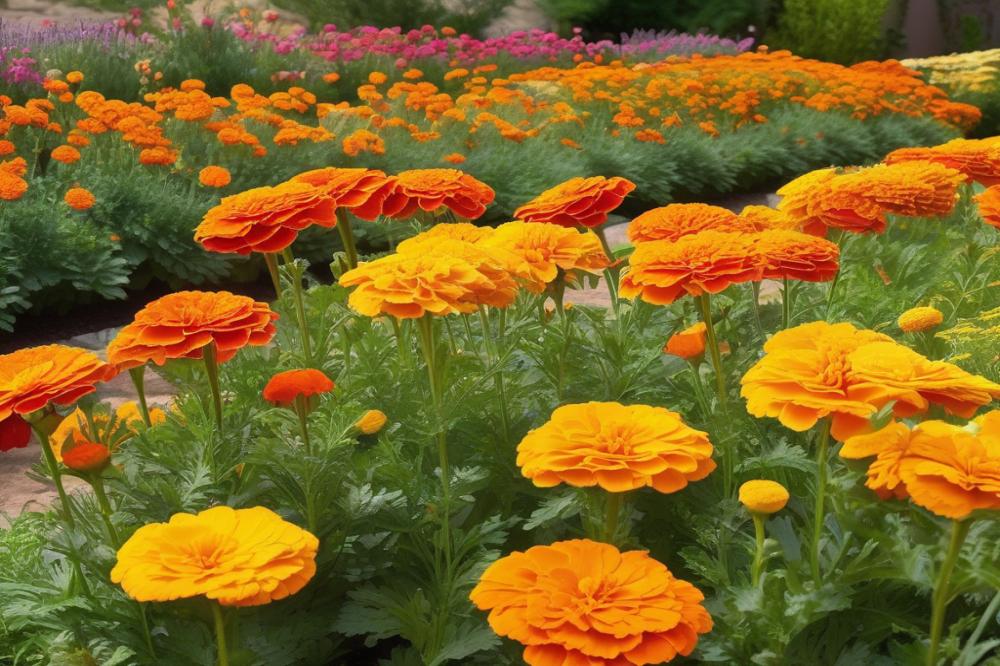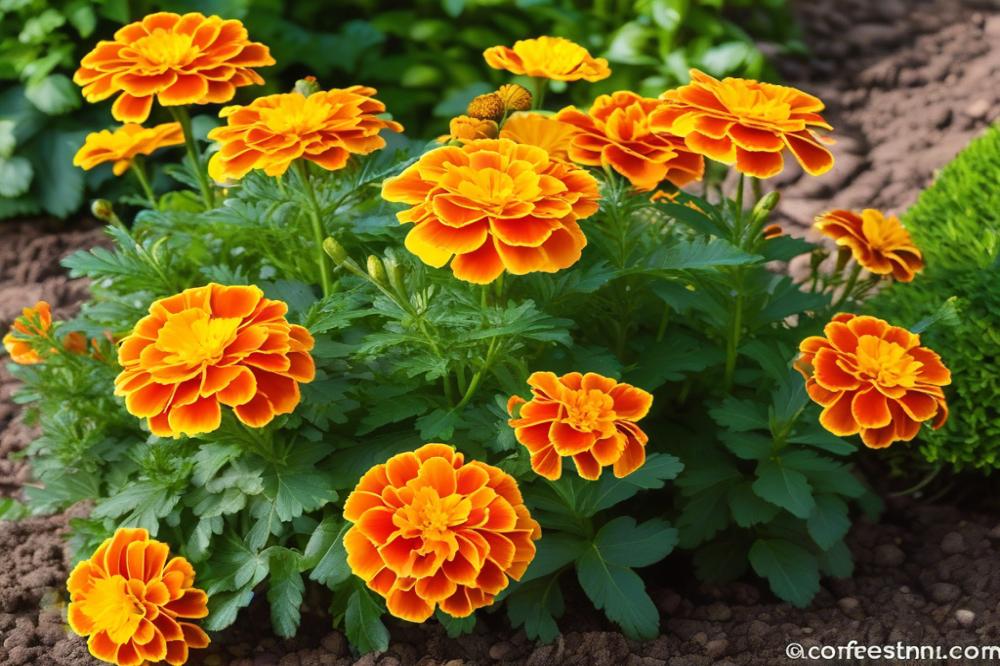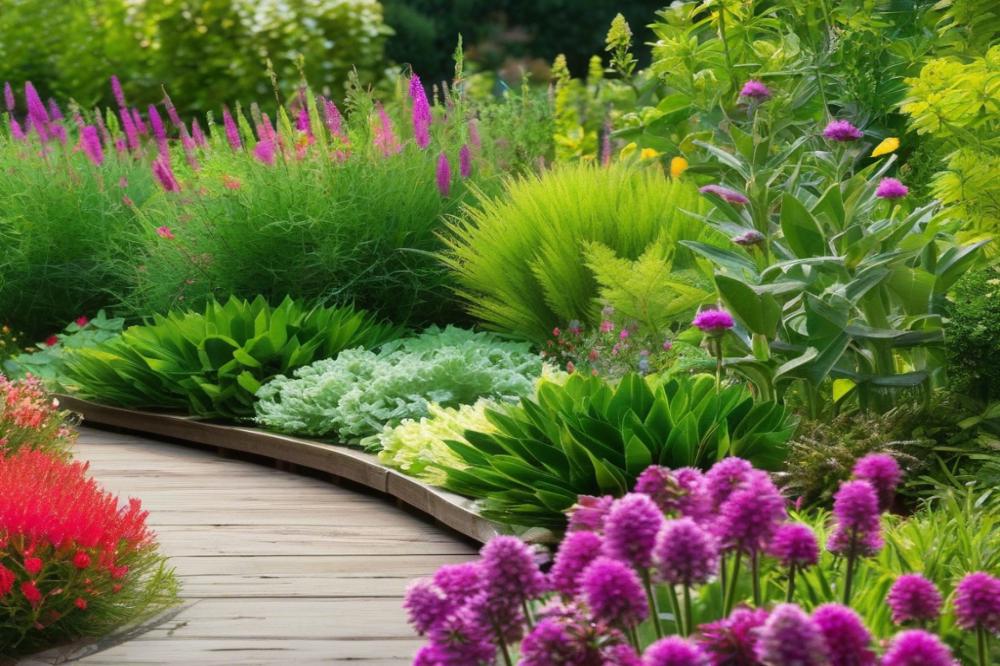Importance of natural pest control in Organic gardening
Maintaining a thriving garden free from harmful insects is essential for any organic gardener. While many traditional methods rely on synthetic chemicals, these can harm the environment and disrupt local ecosystems. Insects can cause significant damage to plants, making pest control a priority. Organic gardening emphasizes the use of natural solutions to manage these challenges. Choosing the right plants can enhance both the health of your garden and its productivity.
marigolds as Natural pest deterrents


Aromatic plants such as marigolds serve as effective biological repellents against various garden pests. These colorful flowers are often paired with vegetables and herbs during companion planting. Their scent can confuse insects and keep them at bay, offering a chemical-free alternative for protection. This approach not only deters harmful bugs but also creates a vibrant and appealing garden space. By incorporating these blooms into your landscape, you promote a balanced ecosystem while supporting your plants’ health.
Purpose of This Article


This article aims to delve into the benefits and practical uses of marigolds in the garden. By exploring their role as an insect repellent, gardeners can learn how to enhance their pest management strategies. Understanding how these flowers interact with surrounding plants is crucial for effective plant care. Highlighting their qualities as edible flowers further showcases their versatility. Ultimately, the information provided will assist gardeners in making informed decisions about utilizing these beautiful blooms for natural pest control.
Understanding Marigolds


Description and Types of Marigolds
Marigolds are bright, cheerful flowers that come in various types, each offering something special. Common varieties include African marigolds, French marigolds, and signet marigolds. The colors range from deep orange to sunny yellow, bringing vibrancy to any garden space. Different species vary in size and bloom style, making them versatile for different gardening needs. Gardeners often choose between taller varieties or low-growing types, depending on their desired aesthetic and function.
Unique Characteristics of Marigolds That Make Them Suitable for Pest Control
These flowers possess several distinct traits that aid in natural pest control. Their strong aroma acts as an insect repellent, keeping unwanted bugs at bay. Studies show that marigolds can deter aphids, nematodes, and other garden pests. They also attract beneficial insects, like ladybugs and lacewings, which prey on harmful pests. When integrated into companion planting, they help create a healthier garden ecosystem that discourages pests without synthetic chemicals.
Nutritional and Aesthetic Benefits of Growing Marigolds in the Garden
In addition to their pest-repelling qualities, these flowers offer nutritional benefits. The petals of certain marigold varieties are edible and can enhance dishes with their vibrant color and mild flavor. Including them in salads adds an interesting touch. Visually, they enhance garden beauty with their bright blooms and lively presence. Apart from their aromatic benefits, their presence can elevate the entire gardening experience, creating a more inviting atmosphere for relaxation and enjoyment. Moreover, marigolds are easy to care for, requiring minimal plant care to thrive in various soil types and climates.
Natural Pest Control Mechanisms of Marigolds


Marigolds are celebrated in organic gardening for their ability to act as natural pest deterrents. These vibrant flowers release certain compounds into the soil and air that are unappealing to various garden pests. For example, nematodes, which are microscopic worms that can harm plant roots, are often repelled by marigolds when they are planted nearby. They create a hostile environment for these pests, allowing other plants to thrive.
In addition to nematodes, these flowers also deter insects like aphids. Aphids can quickly multiply, causing serious damage to your plants. When you introduce marigolds into your garden, you create a barrier that can keep aphids away from more vulnerable plants. The presence of these cheerful blossoms sends a signal to pests that they should look elsewhere for food.
The scent of marigolds plays a crucial role in their effectiveness as insect repellents. Many pests are not fond of their strong aroma, which can mask the scents of plants that attract unwanted insects. Also, the bright colors of the flowers draw beneficial insects such as ladybugs and lacewings. These helpful creatures feast on garden pests, further enhancing your plant care strategy.
Companion planting with these aromatic plants can provide significant benefits. Gardeners often combine marigolds with vegetables and herbs to create a protective setup. Edible flowers can serve a dual purpose, beautifying the garden while acting as a natural defense mechanism. This approach promotes a healthier ecosystem in your yard.
Overall, incorporating these flowers into your gardening routine can help manage pests without relying on chemical solutions. Their natural pest control abilities align well with organic gardening practices. A diverse garden filled with various plants can thrive while benefiting from the unique characteristics of marigolds.
Companion Planting with Marigolds
Overview of Companion Planting Principles
Companion planting is a gardening technique that encourages the growth of different plants close together. This strategy can enhance growth, deter pests, and optimize space. By mixing plants with complementary benefits, gardeners achieve healthier crops. Certain plants can repel harmful insects while attracting beneficial ones. It’s a natural way to manage pests without using chemicals.
Best Plants to Pair with Marigolds for Enhanced Pest Control
Some plants work particularly well alongside marigolds. For example, tomatoes are known to thrive when planted near these aromatic flowers. The marigold’s scent can act as an insect repellent, keeping pesky aphids at bay. Basil is another great companion. It repels flies and mosquitoes. The combination of basil and marigolds helps create a fragrant barrier that protects more vulnerable plants.
Examples of Successful Combinations
Besides tomatoes and basil, consider pairing carrots with marigolds. The flowers can deter carrot flies, a common garden pest. Another effective combination is lettuce grown near these bright blooms. Both plants can flourish in similar conditions, and the presence of marigolds can drive away harmful insects. Additionally, planting marigolds with cucumbers can deter beetles, promoting better growth and quality.
Benefits of Using Marigolds in Companion Planting for Overall Garden Health
Incorporating marigolds into the garden enhances overall health. These flowers not only repel pests but attract pollinators, which are essential for many plants. The vibrant blooms add beauty to the garden while providing essential benefits. Utilizing this organic gardening method can improve plant care and yield. A diverse garden with careful plant pairings promotes a thriving ecosystem. Therefore, embracing companion planting creates a more resilient and productive garden environment.
Utilizing Marigolds in Organic Gardening
Incorporating Marigolds into Sustainable Gardening Practices
Planting aromatic flowers is a common method for natural pest control. Positioning these plants in the garden can create a friendly environment for beneficial insects. When paired with vegetables or fruits, they act as companions that deter unwanted guests. Planting them along garden borders creates a natural barrier against pests. Combining these flowers with tomatoes, peppers, or squash can prove effective.
Tips for Planting and Maintaining Marigolds for Effective Pest Control
Start with well-drained soil to help the plants thrive. They prefer sunny spots, so choose a location that gets plenty of light. Watering regularly keeps the soil moist but not soggy. Pruning spent flowers encourages more blooms and keeps plants healthy. Additionally, observing foliage for any signs of disease is important for plant care. Using organic fertilizers can further support their growth while protecting the garden.
Integrating Marigolds in Various Garden Layouts
Consider mixing them with edible flowers to increase visual appeal. This adds layers of beauty while also repelling pests. Arrange them in clusters or single rows; either method works well depending on your garden’s design. Place these plants near sweet potatoes or beans for better pest deterrence. A diverse layout not only attracts pollinators but enhances overall garden health. Experimentation leads to discovering the best spots in the garden for these flowers.
Additional Benefits of Marigolds
Edible Flowers in the Kitchen
These vibrant flowers are not just for show; they are also edible. Many people use their petals in salads for color and flavor. The taste can add a slightly spicy kick, making dishes more interesting. Additionally, marigolds can be used to create herbal teas. Their value in the kitchen extends beyond decoration, proving they are versatile.
Aesthetic Value in Gardening
When it comes to enhancing garden beauty, marigolds shine brightly. Their bright hues of orange and yellow create a cheerful atmosphere. Planting them can make your garden more inviting. They can be arranged in borders or interspersed among other plants, giving a lively feel. Flowers like these not only catch the eye but also uplift the morale of anyone who spends time in a garden.
Soil Quality and Ecosystem Harmony
A garden thrives on balance, and marigolds play their part well. They can improve soil quality through their roots, which prevent harmful nematodes and enrich the ground. This contributes to healthier plants overall. Many gardeners find that companion planting with marigolds helps to maintain ecosystem balance. The presence of aromatic plants can also draw beneficial insects while keeping garden pests at bay. Maintaining organic gardening practices becomes easier when these flowers are involved, fostering a healthier growing environment.
Wrapping Up the Benefits of Marigolds
Recapping the effectiveness of marigolds as natural pest deterrents shows that they can play a significant role in protecting plants. These vibrant flowers are known for their ability to repel harmful insects. By incorporating them into your gardening practices, you can create a healthier environment for your plants without relying on harsh chemicals.
Many gardeners find that planting marigolds alongside vegetable crops offers impressive results. Their strong scent wards off pests like aphids, beetles, and nematodes. This natural pest control method not only helps maintain plant health but also contributes to the overall biodiversity of your garden. In addition, marigolds attract beneficial insects that can provide further protection against pests.
It’s clear that integrating aromatic plants like marigolds into your garden can be mutually beneficial. As a gardener, you face many challenges, and choosing to use natural solutions allows you to tackle these in a sustainable way. By selecting marigolds, you’re adding a splash of color while promoting a healthier ecosystem. Enthusiasm for gardening doesn’t have to be complicated. Utilize simple strategies, like planting marigolds, to enhance your garden experience.
In conclusion, the benefits of using marigolds extend beyond aesthetics. They give you a practical tool in the fight against pests. This organic approach promotes environmental health while beautifying your space. Embrace the potential of these flowers; your garden will thrive as a result.



